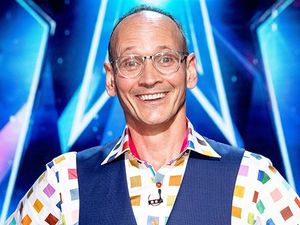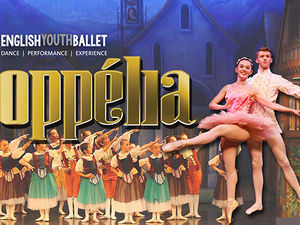It's news, but not as we know it says Dead Donkey creator Andy Hamilton amid stage adaptation
If you were a conspiracy theorist, you might be forgiven for thinking the television news industry has evolved purely to give Andy Hamilton and his co-writer Guy Jenkin some new material to work with.
Watch more of our videos on ShotsTV.com
and on Freeview 262 or Freely 565
More than a quarter of a century since Channel 4 screened its last episode of Drop the Dead Donkey, the cast is back together for a stage adaptation of the hit newsroom comedy, reinvented to reflect today's media landscape.
"They're the same, but older," says Hamilton, who created the series with co-writer Jenkin some 34 years ago.
"Sally is as much of an egomaniac as ever, Damian is chronically dishonest, and George is still out of his depth."
Back in the 1990s, the sitcom about a beleaguered TV newsroom struggling to maintain standards under pressure from a rapacious new proprietor became a cult hit. Hamilton always maintained that its ensemble cast, made up of little-known character actors, was crucial to its success, and for many members it proved to be the springboard to successful and varied careers.
But although the series ended in 1998 – with Globelink News being turned into a TV shopping channel – the close-knit cast kept in regular contact. And it was at Zoom get-togethers during coronavirus lockdown that the cast members began debating how the show would have evolved were it still being made today.
When Drop The Dead Donkey was first screened on Channel 4 in 1990, Britain's first 24-hour news channel was still two years away, and most people were unaware that the internet actually existed. How would the shallow, vacuous newsreader Sally and indecisive editor George have adapted to this brave new world? How would amoral field reporter Damian get away with his sensational but unethical reports in the post-Leveson climate? As the ideas took shape, Hamilton and Jenkin realised they could have the making of a theatre production.
Hamilton says: "What we have seen in the last few years is the emergence of channels like GB News and Talk TV, they are not reporting on the news in the traditional sense, they are about people sitting around talking about the news, getting information about the news and trying to prove their agenda to the audience."




